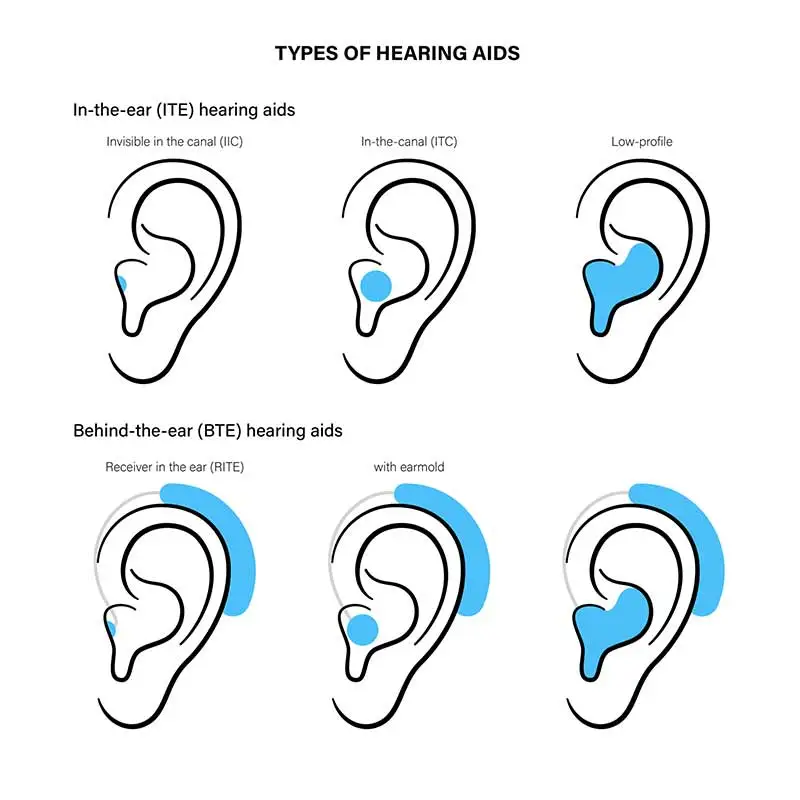
Choosing the right hearing aid can be a daunting task, but with the help of an audiologist and careful consideration of lifestyle, hearing loss, listening demands, and budget, finding the perfect hearing aid can be a stress-free process. In this blog, we’ll explore how to choose the right hearing aid for you.
Consider Your Lifestyle
One of the most important factors to consider when choosing a hearing aid is your lifestyle. Do you work in a noisy environment? Are you frequently on the phone or computer? Do you frequently attend social events or live performances? Do you enjoy outdoor activities like hiking or cycling? All of these factors can influence the type of hearing aid you choose. For example, if you work in a noisy environment, you may need a hearing aid with noise reduction technology. If you frequently attend social events, you may want a hearing aid with directional microphones that can pick up speech from specific sources.
Consider Your Hearing Loss
Different types of hearing aids are designed to address different types and degrees of hearing loss. An audiologist can perform a hearing test to determine the specific type of hearing loss you have and the best hearing aid to address it. Some hearing aids are designed for mild hearing loss, while others are better suited for severe or profound hearing loss. Additionally, some hearing aids are designed to address specific types of hearing loss, such as high-frequency hearing loss.
Choose the Right Style
Hearing aids come in a variety of styles, from behind-the-ear (BTE) to completely-in-canal (CIC) devices. The style of hearing aid you choose will depend on your personal preferences, hearing needs, and cosmetic concerns. Each style has their own unique features and benefits. Your audiologist will factor in other factors such as dexterity and vision to help select the best hearing aids for you.
Find Your Budget
Hearing aids can be expensive, but there are options available for every budget. It’s important to set a realistic budget before beginning your search for a hearing aid. Be sure to factor in ongoing costs like batteries, maintenance, and repairs. Additionally, some insurance plans cover hearing aids, so be sure to check with your insurance provider. Remember, hearing aids will last years and your hearing is important to your general health.
Consult with an Audiologist
Choosing the right hearing aid is a complex process, and an audiologist can provide invaluable guidance and support. An audiologist can perform a hearing test, recommend hearing aids based on your hearing needs and lifestyle, and help you navigate the often-confusing world of hearing aid technology. Additionally, an audiologist can help with the fitting and adjustment process, ensuring that your hearing aid is comfortable and effective.
In conclusion, choosing the right hearing aid requires careful consideration of lifestyle, budget, hearing needs, and personal preferences. With the help of an audiologist, finding the perfect hearing aid can be a stress-free process, allowing you to enjoy the sounds of the world around you once again.
